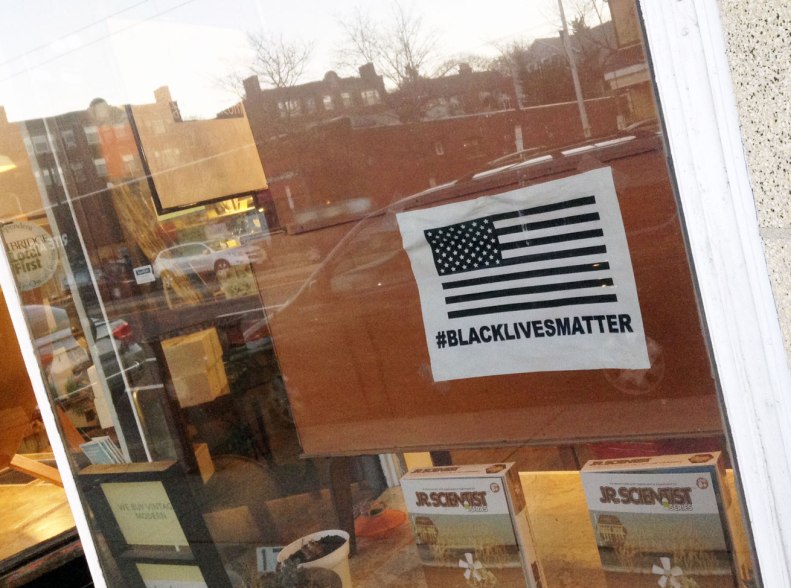I’m on the third floor of City Hall, checking out the topographical map of Old Cambridge (then called Newtowne.) A young, energetic photographer beside me, gazing on the faded gray and little bumps of green, the expanse of woods and winding Charles River, says, “Wow. Can you imagine living back then? So much green!” She sighs wistfully. I slant her a look.
“Mmm,” I respond. “I’m all set. In that Cambridge, I would have been a slave, and you’d probably be an indentured servant.”

My mother, my partner, and I are doing that ridiculous thing where we’re waiting outdoors in a line, in winter, to get tidbits of free chocolate. We’re at Harvard Square’s annual festival because it’s fun, and we apparently enjoy riding that edge of discomfort and delight. As we bob and wiggle to keep warm, a young woman makes her way down the line, handing out flyers. I want to avoid her but politeness makes me meet two bright eyes as she asserts her message: come to our rally to help end human trafficking!!
The irony slaps me and I want to laugh: how do you think I got here?

By my early twenties, I had settled on how it was going to be for me, life-long:
- As a person of primarily African heritage, my perceived value to this country is best exhibited by a mental ‘game’ I made up as a child: Who Matters Less [than me] In the US? (my childhood answers: Native Americans, disabled people, the poor, anyone not-hetero. Sometimes, I’d make combos to see how low I could go – poor/female/Afro-Native? etc. )
- As a woman in the world, I expect to be paid/trusted/listened to less
- Growing up ‘straight’ was an un-arguable given (unless a person was willing/able to fight)
- Being mixed-social class is invisible; there’s barely any language to describe it
- As a feminist, I fight relentless, confusing de-humanizing perpetrated by both men and women
- Raised radical, many of my personal views don’t make it into casual conversation
- There’s much I’ll never share with non-Black friends (polite company don’t talk race)
- Any claimed ‘wokedness’ changes zilch about how I’m viewed, as much as it influences everything about how I see

Nearly halfway through my life and so, so far from the front lines, why am I writing about this now?
I guess ’cause eight years ago, when Obama was first getting elected to our country’s most public/most maligned office, white strangers with tiny HOPE buttons suddenly started striking up conversations with me on public transit. Because kids-these-days are using crazy terms like intersectionality and finding ways to classify and re-see unseen gender identities (cis & trans & ???). Because in three out of three cities where I regularly spend time, residents have various and continued opportunities to engage in conversations about race and gender.
Norms that I’ve long wished weren’t the norm are getting Grizzly-smacked right out of the water while I watch.

As a kid learning about American Civil Rights, I assumed the effort was something with which everyone got involved, for better or ill. The whole country, struggling. Text books failed to get across the nuance of those decades where some joined, some didn’t, some hid, some fought, some died, and some weren’t even cognizant -absorbed in childcare or studying Latin or pulling lobster traps over the side of a boat.
Now, I understand as I watch young people define a new movement. It’s a strange, somewhat disembodying experience, walking past Black Lives Matter signs. Part of me says duh! and another part says wow. I can taste the desire to re-establish the platform of faith and ideals from which we’ve been slipping. In my imagination, today’s efforts reverberate back to the folks behind me – the original Sinclairs and Newbys, whose worth was written: sugar, cotton, blood. In a way, I understand those signs hanging over churches and in stores and dorm windows to be a whisper: We hear you. Thank you.
But did you notice that distinction, how I keep walking past –my multi-partial self who hasn’t yet found it in me to act as activist, to choose? I want a way to choose ALL the sides, without devaluing a single one. I want to devise a cyclone-of-uplift that gathers up Asian folk and Native folk and generationally-poor whites who see #blacklivesmatter and feel tightness in their chests. I want a way to look across my cities and see versions of me with my hair represented at all levels, for it to not be a surprise or special treat. I want an end to supposed firsts, a ladder leading back to variation upon variation. I want to discover a solution to forgetting.
I mean, why should my slave heritage be any less proud than a ship to some island where they changed your name? Both were taught to me in school; far as I’m concerned, both histories are mine.

I’m strolling through Harvard Yard. It’s early spring and the sun is warm, dappled, and accenting the beauty of two brown students as they stand beside a redbrick building, amicably arguing about ‘wokeness’. The young man claims depth and veracity. The young woman teasingly, amicably shakes her head: unconvinced.
Woke. The poet in me loves that term. The MTV Generation punk, the alt-view malcontent, who is learning and making mistakes, who feels equal parts curious and cautious . . . and hopeful.
Smiling to myself as I catch snatches of the students’ debate, I half applaud/half mock them, conjugating: She woke. He a-woke?
We re-woke to the reality.
